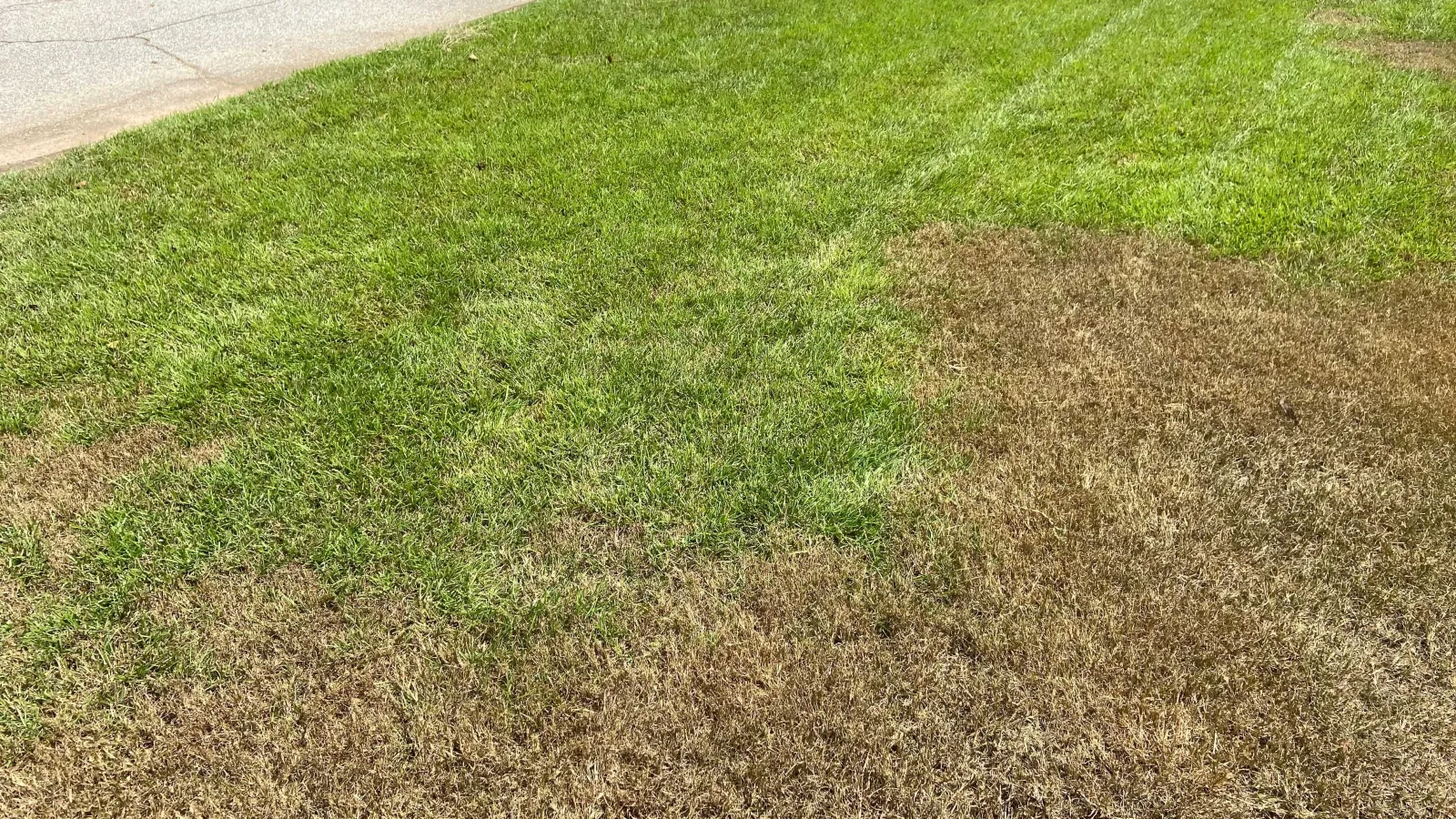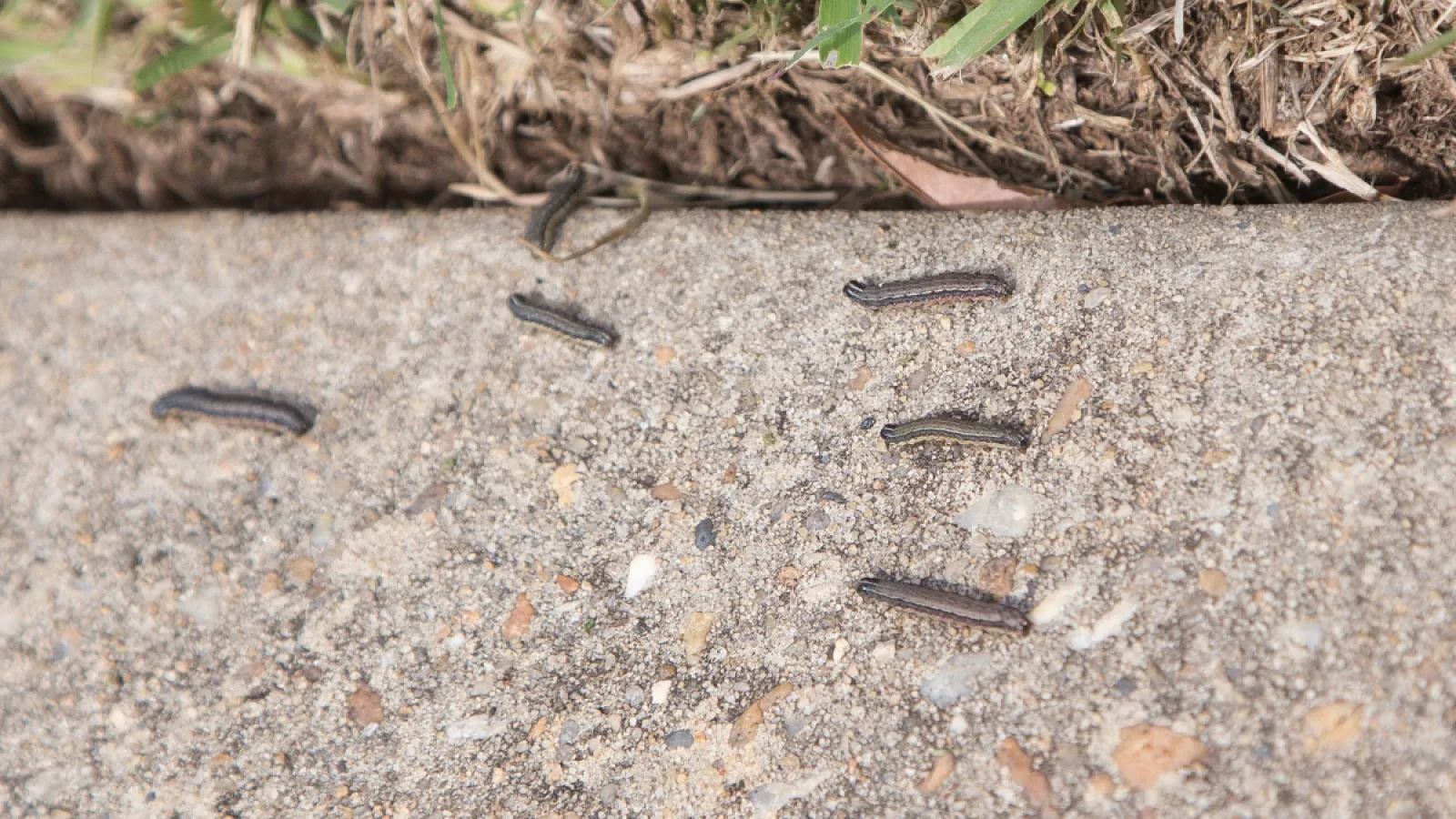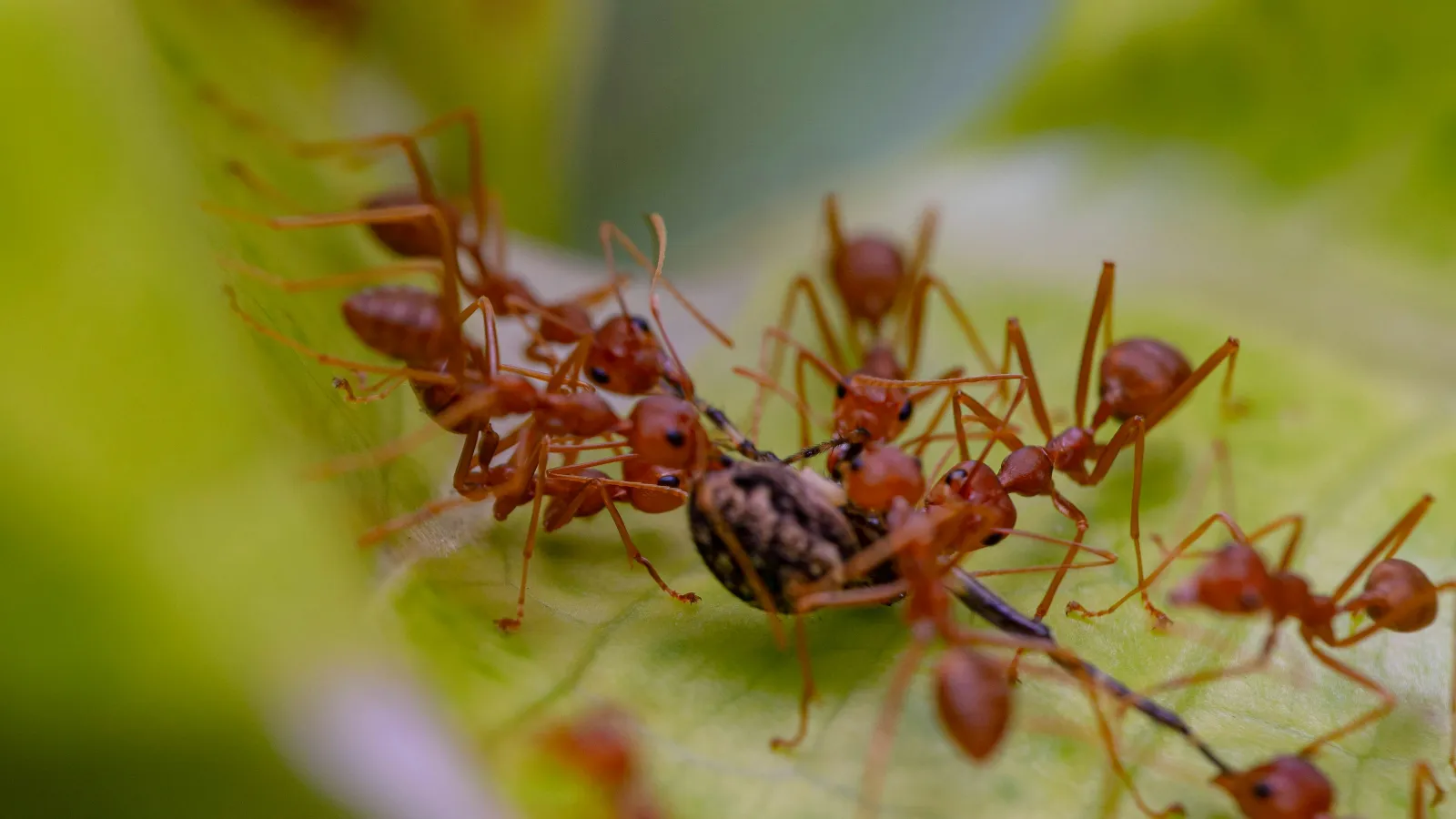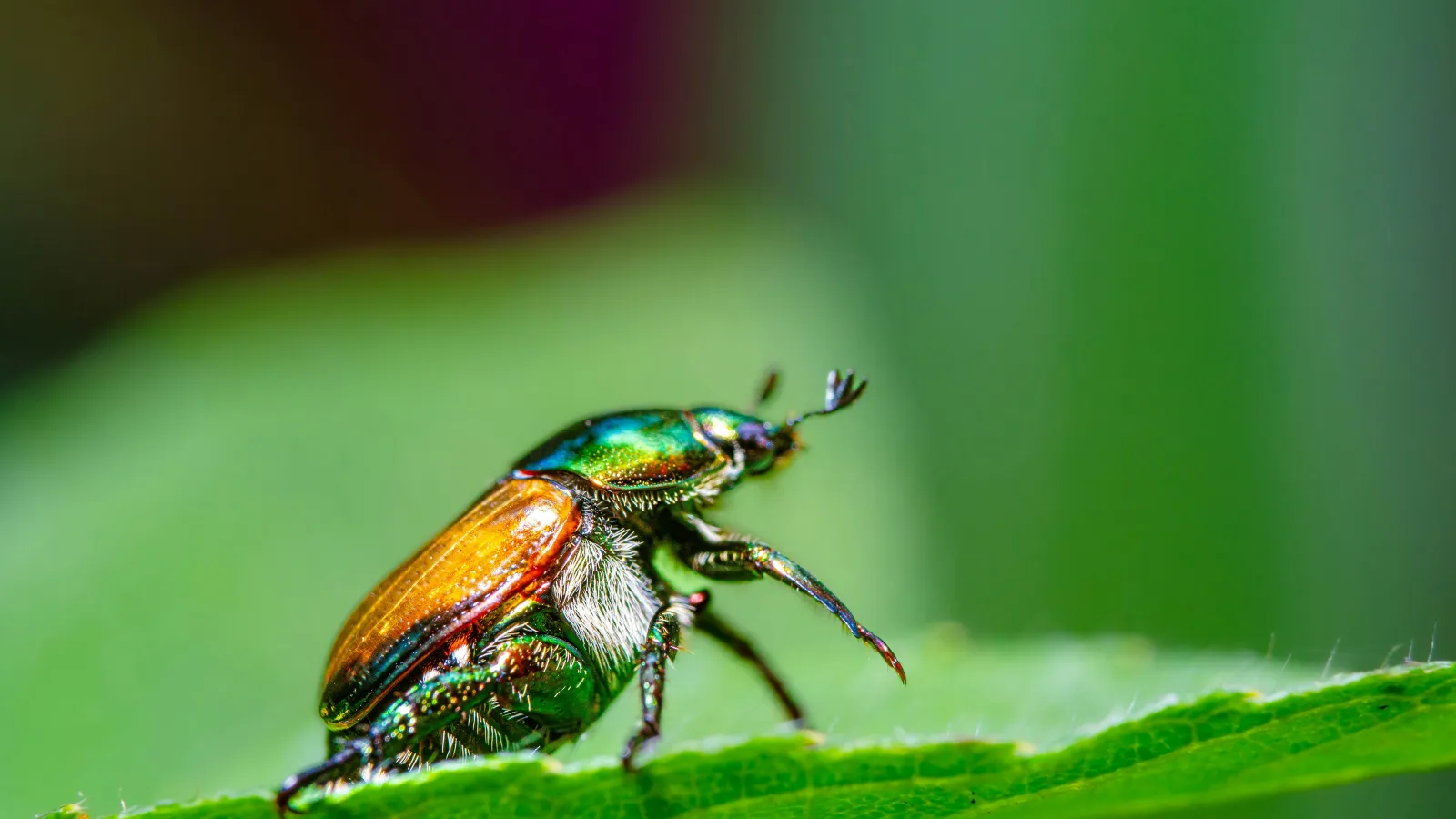
Fall Armyworms: Everything You Need to Know
Fall armyworms can be a destructive nuisance in the late summer and early fall.
Preferring regions mostly in the southeastern United States, the armyworm displays a wide host range, but definitely prefers grass. The plants that are consumed most often by this pest include:
- Field corn
- Sweet corn
- Sorghum
- Bermuda grass
- Grass weeds like crabgrass
Armyworms get their name from the uniform destruction pattern they create as they “march” across a lawn.
These “worms,” which are undoubtedly capable of damage, are actually the larvae of the fall armyworm moth. The larvae, identified as brown and gray striped with an inverted “Y” on their heads, cause damage by consuming foliage as they eat their way through leaf tissue, leaving holes and a ragged, torn mess behind. The adult moths possess gray and brown shaded forewings with triangular white spots at the tip and near the center of the wing, and iridescent hind wings that are silver-white. These adults are nocturnal and are mostly active during warm, humid evenings, like the ones we experience in late summer.

Since the fall armyworm moth is active very early in the morning and very late in the evening, it can be difficult to identify them. Fall armyworms develop shortly after an adult moth lays her eggs on or near a lawn, which also makes it difficult to prevent them. The moth will often choose areas near healthy, well-irrigated lawns on which to lay her eggs, making your grass the most desirable spot.
Proper treatment begins with identification. It may take weeks for your lawn to recover from armyworm damage, so try your best to quickly identify them and begin treatment immediately. Once identified, they are easy to eradicate if properly treated, so let us help!
But why wait for armyworms to start “marching” on your lawn before taking action? We offer a one-time, preventative Armyworm Treatment to prevent armyworms.
If you have questions about eliminating fall armyworms, please contact us.


